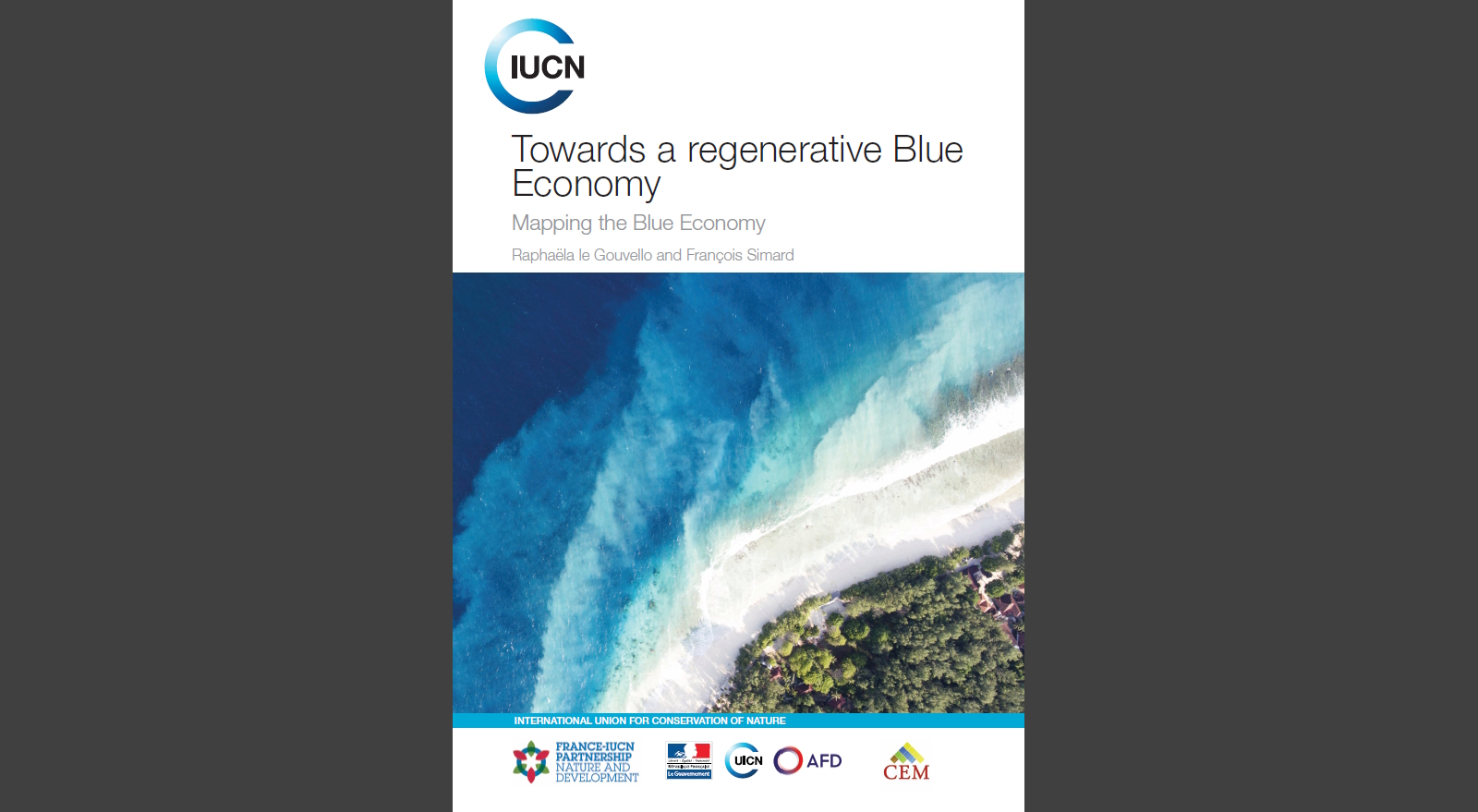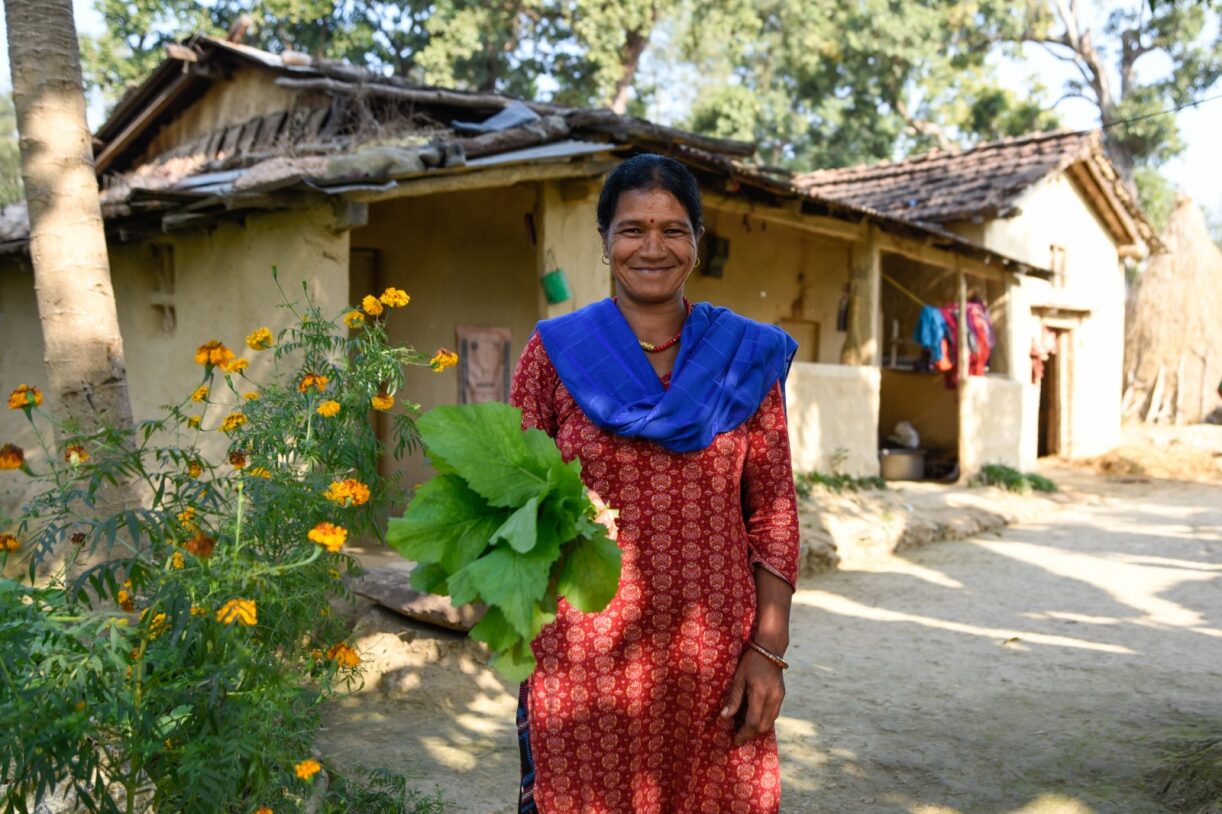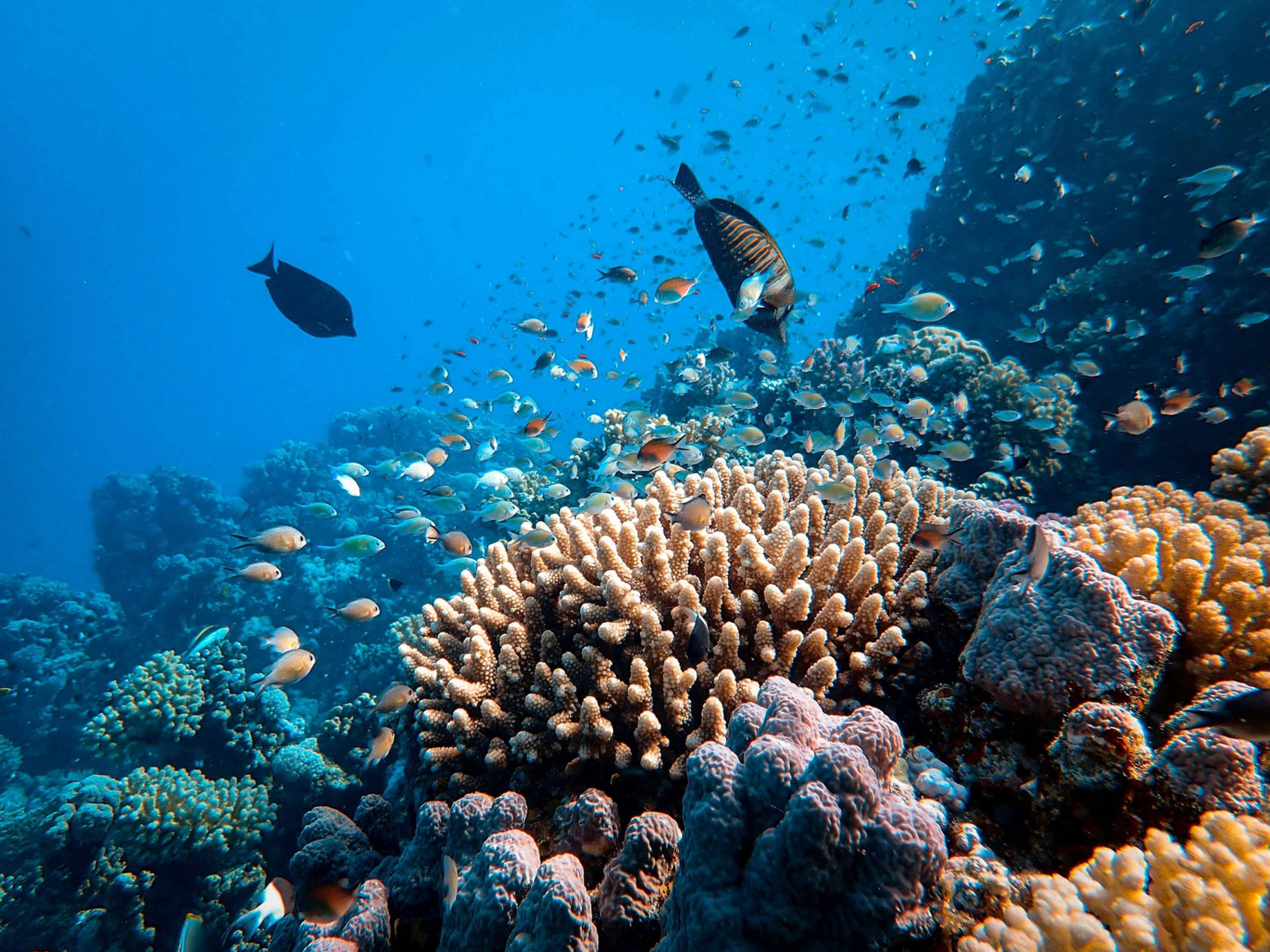New IUCN report shows way toward Regenerative Blue Economy
Designed as a global primer, this new IUCN report proposes a clear definition and founding principles for a “Regenerative” Blue Economy. It defines different sustainability levels within the overall umbrella and sets ambitions for nature and society alike. The report analysis includes the historical evolution of Blue Economy concepts and approaches, and applies the vital requirements of conservation merged with sustainable development, taking into consideration the viewpoints of all regions across the globe. In French and English.
Download the full report (Français) (English)
The need to frame a Regenerative Blue Economy
There is no one universally accepted definition nor set of founding principles for a Blue Economy.
Since the close of the 20th century, high economic and social expectations (including livelihoods) have been placed on ‘blue’ growth to fuel a ‘blue’ economy, with a view to creating a ‘blue’ GDP. However, the shape of any potential Blue Economy has been unclear. Does it include the traditional activities of the ‘maritime’ sector? Realistically, should any economic sector with a demonstrated link to the marine environment be excluded, except for naval military?
Under the France-IUCN Partnership 2021-2024 and with the support of the French Development Agency (AFD), IUCN has developed this primer defining three types of Blue Economy from a conservation and sustainable development perspective:
1. A Blue Economy rooted in the maritime sector, or a 'Brown Blue' Economy
This definition can be conflated with the ‘Ocean Economy’ and includes traditional activities of the maritime sector. It is anthropocentric and based on a conventional economic model.
Blue Economy is here associated with traditional accounting consisting of micro- and macroeconomic profitability and social (including employment) indicators: aggregates of the economic performance of various sectors.
2. The Sustainable Blue Economy
From 2012 on, clarity on the Blue Economy saw progress.
At the United Nations Conference on Sustainable Development (UNCSD),1 Rio+20 Summit, “Blue Economy” was recognised as encompassing all economic activities in the marine sector, provided that these were consistent with sustainable development. This was followed in 2015 by a WWF proposal, with vision, definition, and guidance for a sustainable blue economy; more sustainable and more inclusive than the previous, more basic Blue Economy understandings.
Since then, stakeholder organisations have sharpened their focus on environmental, social, and integrative governance aspects in the definition, scope, and calculation tools. Activities to protect, repair, and restore marine and coastal ecosystems and ecosystem services are integrated into this focus. Success measurement, in the form of environmental assessments and key performance indicators (KPIs), has also been added to traditional conventional accounting for the Blue Economy.
Nevertheless, debate continues on the economic, environmental, and societal performance of these encapsulations of a sustainable Blue Economy. Much research is yet needed to clearly assess sustainability aspects.
3. The Regenerative Blue Economy
A profound pre-2012 claim originated by Pacific Island Countries initiated demand for an improvement to the Blue Economy principles and application then understood.
For Small Island Developing States (SIDS), the challenges of protecting and preserving the health of marine and coastal ecosystems, and living marine resources, are critical, as declared in 2009 by the IUCN Oceania Regional Office. This need requires a “Regenerative” vision for the Blue Economy, going beyond economic factors to be: integrative, inclusive, and regenerative; advocating for an economic model able to meet global and local challenges. To match this model’s vision, the term “Regenerative” has been prepended to “Blue Economy” since 2020.
As it evolves, the understanding of a regenerative blue economy progresses in influence and becomes a positive actor, contributing to the fight against climate change and biodiversity loss, thereby becoming an ‘Ocean-positive economy’. New activities around blue carbon can be part of this new regenerative blue economy from the outset, provided best practices – still to be defined – are used.
Certain activities, such as oil extraction, are excluded from this scope, either because they are considered incompatible with the carbon reduction objectives of the 2015 Paris Agreement or are activities deemed too threatening for marine ecosystems, such as deep-seabed mining (DSM). To fall under the scope of the regenerative blue economy, other sectors such as fishing, aquaculture, and tourism will need to adapt their practices.
New success indicators, such as the ‘Ocean Impact Navigator’, have been proposed as a way to evaluate the positive impact of the Regenerative Blue Economy on ocean and coastal socio-ecological systems.
A Regenerative Blue Economy is inclusive, advocates for ‘blue justice’, and is based on a participatory, transparent, and inclusive governance model, at multiple levels. This model is based on the broad principles of the ecosystem approach, respecting the rights of nations and coastal communities. In economic terms, a Regenerative Blue Economy seeks robust sustainability, prioritising the preservation of blue natural capital.
The importance of collaboration, IUCN Union-wide and further
This work is designed to help guide efforts, inside and outside the IUCN Union, to steer ocean activities and uses towards a regenerative approach and to ensure recognition of developing countries’ (including SIDS') leadership in spearheading Regenerative Blue Economy strategies. This work should be used in all forums addressing (or including) the Blue Economy, now and for future generations.
This primer report is the result of a joint effort between IUCN Commissions, Secretariat and partners under the France-IUCN Partnership (2021-2024).
The full report and support during its development
Published by IUCN, the report was developed in the context of the Sustainable Blue Economy project and financed by the French Development Agency (FDA), under the France-IUCN Partnership umbrella, led by experts from the Ecosystem-based Aquaculture Specialist Group (E-bAG) of the IUCN Commission on Ecosystem Management (CEM).
Learn more
Download the full report (Français) (English)
IUCN CEM Ecosystem-based Aquaculture Group (E-bAG)
For even more information, please contact: Ocean@iucn.org





